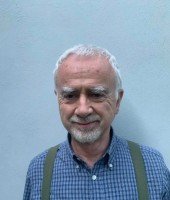Diego Gambetta
Diego Gambetta is Carlo Alberto Chair at the Collegio Carlo Alberto, Italy and Emeritus Fellow of Nuffield College, Oxford. After his PhD in social and political sciences (Cambridge, 1983), he was Research Fellow at King's College, Cambridge from 1984 to 1991. He moved to Oxford in 1992, first as a Lecturer in Sociology at St. Anne’s College, then in 1995 as a Reader in Sociology and Fellow of All Souls College, and finally, in 2003, as an Official Fellow of Nuffield College.
In 2012 he took up the Chair of Social Theory at the European University Institute (Florence) where he remained until he moved to Turin in 2019. He has held visiting positions at the University of Chicago, Columbia University, EHT Zurich, Science Po and Collège de France in Paris, Stanford University and NYU.
Diego Gambetta joins the Paris IAS in March 2026 for a one-month writing residency.
Research topics
Trust; Sicilian mafia; Violent Extremists; Signalling theory.
Puzzles – a method of discovery
Unexpected, counterintuitive correlations – puzzles for short – can be a creative research method. They are a source of some of the most enduring social science discoveries.
The Tocqueville paradox derives from the observation that revolutions and rebellions occur when people social conditions improve. One of Emile Durkheim’s explanations of suicide – more frequent where there is a low degree of social integration – came from observing that Protestants were more suicidal than Catholics who in turn were more suicidal than Jews. Charles Darwin’s Origins of Species by means of natural selection was inspired by observing that finches had beaks of different shapes in different islands. Darwin’s explanation was that these variations are specialised adaptations that make birds more fit to survive on the type of food available in their respective islands.
Relying on recent research, this research project argues that puzzles help us identify new questions, rule out erroneous explanations of social phenomena, and generate new theories. Puzzles focus our attention on sharply defined relations on which it is easier to gather data and run tests than when we approach research questions in general. Unlike predictions derived from theories, this is a bottom-up, humble approach that accepts our limitations. These benefits are obtained for instance when instead of asking what drives some individuals to become jihads, this project asks why there is a disproportionate number of engineers among them.
Key publications
Diego Gambetta, Thomas Hegghammer. Fight, flight, mimic. Identity mimicry in conflicts, Oxford University Press, 2024.
DOI: https://doi.org/10.1017/S0003975625000049
Diego Gambetta, Stephen Herzog. Engineers of Jihad. The curious connection between education and violent extremism, Princeton University Press, 2016.
DOI: https://doi.org/10.2307/j.ctvc779ns
Diego Gambetta. The Sicilian Mafia. The industry of private protection, Harvard University Press, 1993.
Available on this webpage: https://www.jstor.org/stable/30026921
|
|
|
|
|
|

